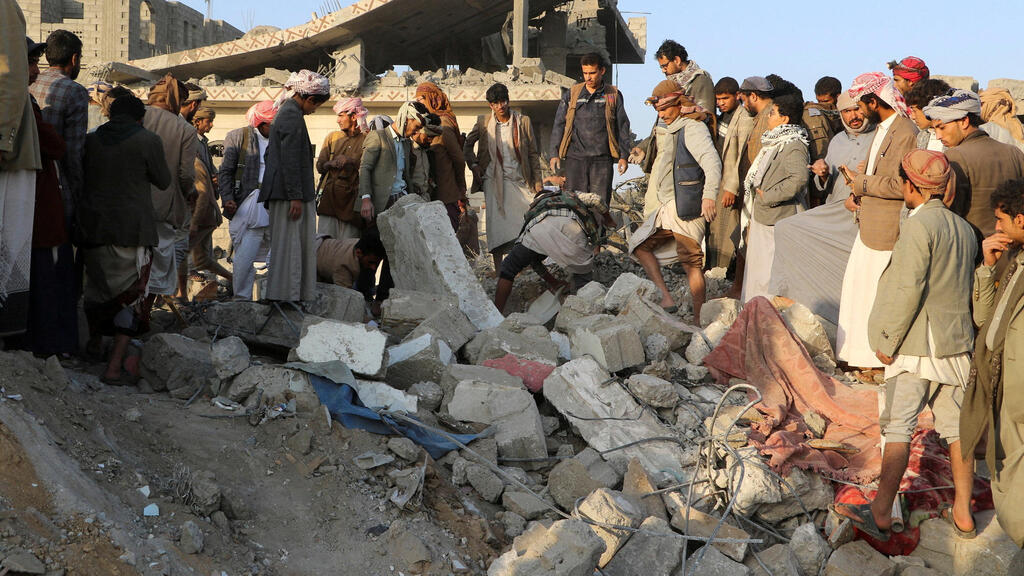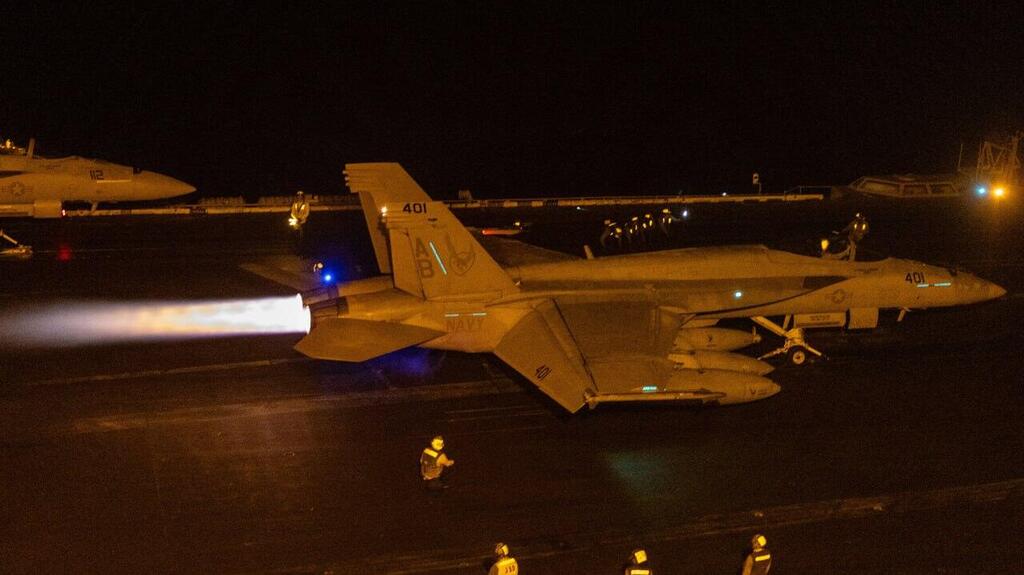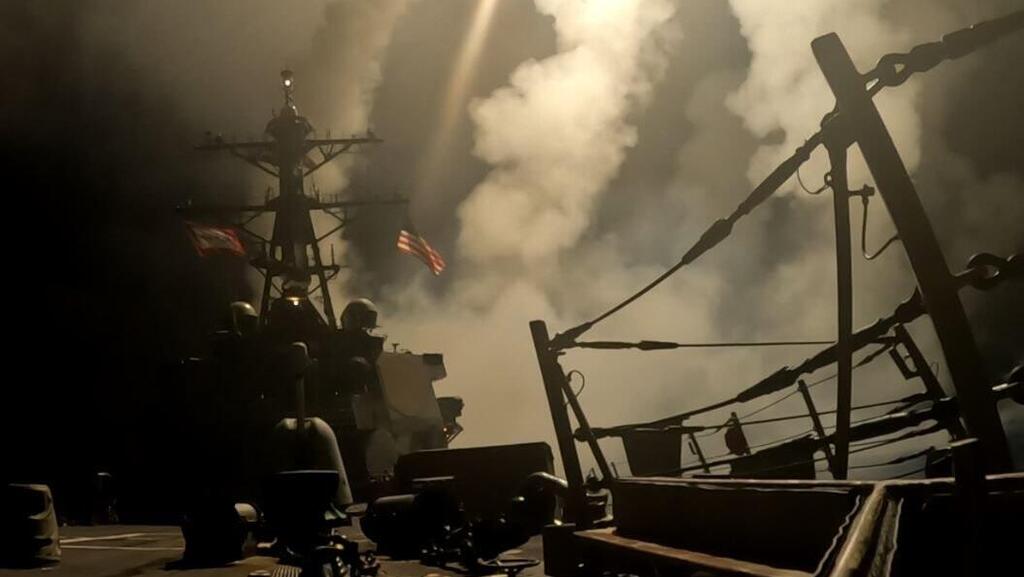Getting your Trinity Audio player ready...
U.S. National Security Adviser Mike Waltz said Sunday afternoon that several "leaders" of the Houthi terror group were eliminated in the latest wave of U.S. airstrikes in Yemen. He did not specify how many were killed. Earlier reports in Arab media claimed six senior Houthi officials were killed, though these reports have not been independently verified. Waltz himself did not provide names or clarify the rank of those killed.
In an interview with ABC News, Waltz described the strikes as the most extensive to date, emphasizing — as did President Donald Trump — the difference between these attacks and the more limited strikes carried out under former President Joe Biden. “This wasn’t a pinprick, or repeated strikes that ultimately proved weak,” Waltz said, referring to Biden-era attacks that were highly measured and primarily aimed at thwarting imminent Houthi threats to ships in the Red Sea and Gulf of Aden.
US attacks on Sanaa and the aftermathן
Waltz said the current strikes represent a “decisive response” that has targeted and killed several Houthi leaders. He added that a key difference in Trump’s approach is holding Iran accountable for its support and financing of the Houthis. That backing, he said, has enabled the group to disrupt critical maritime trade routes through the Red Sea and Suez Canal under the guise of supporting Palestinians since the war in Gaza began.
Waltz stressed that Iran should “hear clearly” the message from Washington and immediately end its support for the Houthis, echoing Trump’s warning Saturday night at the launch of the air campaign. Waltz did not rule out potential strikes on Iran’s nuclear facilities, citing Tehran’s continued refusal to engage in negotiations for a new nuclear agreement and its rejection of harsher U.S. sanctions. “All options are on the table,” he said. “We cannot accept a world where the ayatollahs have their finger on the nuclear button.”
6 View gallery


US President Donald Trump during US attack on Yemen's Houthis
(Photos: Khaled Abdullah/Reuters, White House/Handout via Reuters)
Meanwhile, U.S. Defense Secretary Pete Hegseth said Sunday that the U.S. strikes would continue until the Houthi threat to international shipping lanes is eliminated. “This will continue until they say, ‘We’re done shooting at ships. We’re done shooting at assets,’” Hegseth said in an interview with Fox News.
Hegseth also called on Iran to withdraw its support for the Houthis, emphasizing that the Trump administration’s actions in Yemen are aimed solely at ending attacks on Red Sea shipping — not at intervening in Yemen’s ongoing civil war. “We don’t care about Yemen’s civil war,” Hegseth said. “These strikes are about stopping attacks on a critical maritime route.”
Secretary of State Marco Rubio also addressed the strikes, clarifying that a U.S. ground operation in Yemen is not under consideration at this time. “I don’t think there’s any need for that right now,” he said. Like Hegseth, Rubio indicated that the air campaign will continue until the Houthis no longer have the capacity to attack commercial shipping.
6 View gallery


Damage from one of the American attacks, in Saada province in northwestern Yemen
(Photo: Naif Rahma/Reuters)
The U.S. offensive against the Houthis began Saturday night with a large wave of strikes on multiple targets in Houthi-controlled areas, including the capital, Sanaa. The Houthis claimed at least 31 people were killed in the attacks, including women and children, and reported more than 100 injuries. U.S. media outlets reported that the strikes, which continued through the night, are expected to last for several days—and possibly weeks. Washington has made clear that the campaign will continue until the Houthi threat to global trade through the Red Sea is neutralized.
The Wall Street Journal reported that, according to two officials briefed by the Trump administration, the air campaign has three objectives: to destroy Houthi missile launchers aimed at ships, to eliminate the group’s leadership, and to send a message to Iran as it continues to reject negotiations for a new nuclear deal. In addition to military sites, Saturday night’s strikes reportedly targeted the homes of Houthi leaders in Sanaa, as well as missile launchers being moved to coastal areas in preparation for new attacks on ships.
According to Arab media reports, the Houthis have since emptied their missile warehouses and relocated them to underground facilities. Despite the strikes, they vow to continue what they describe as their "campaign of support for Palestine." The Houthis have also threatened retaliation, raising concerns that Israel may once again become a target.
The Houthis halted missile and drone attacks following the cease-fire in Gaza but announced last week they would resume what they called a "naval blockade" on Israel, threatening ships passing near Yemen’s shores after Israel temporarily suspended humanitarian aid to Gaza as leverage on Hamas.
“The strikes will not deter Yemen from continuing to support Palestine and Gaza. They will not go unanswered,” the Houthis' political bureau said Saturday night. On Sunday afternoon, the group claimed that the American strikes themselves now pose a “serious threat” to Red Sea shipping routes — an indication they may escalate their attacks on commercial vessels in retaliation.
American fighter jets take off for attack in Yemen
(Video: CENTCOM)
Following the wave of U.S. airstrikes against the Houthis in Yemen overnight, Sky News Arabia reported Sunday that the Iran-backed terror group has ordered its leaders to evacuate their homes out of fear they will be targeted by American warplanes.
“They are instructing their leaders to avoid government buildings or headquarters that could be attacked,” the report said. It also noted that the Houthis are replacing some members of their personal security teams over concerns about potential security breaches.
At the same time, Saudi television network Al Arabiya reported that several military officials were killed in the U.S. strikes in Yemen’s Al Bayda region. The report also stated that Houthi leaders have relocated in recent hours, with some leaving the capital, Sanaa, for the provinces of Saada and Amran. In addition, the group reportedly emptied its missile warehouses after the strikes. Meanwhile, Saudi channel Al Hadath reported that the Houthis moved the missiles to underground locations in anticipation of further attacks and transferred military equipment to Yemen’s western coast.
The reports come as the Houthis insist that the U.S. operation will not deter them from continuing their campaign “for Palestine.” Mohammed al-Bukhaiti, a member of the Houthis’ political bureau, told Hezbollah-affiliated Al Mayadeen on Saturday that “the U.S. strikes are unjustified because our actions are directed against Israel.” He warned, “A response to American aggression is coming. For us, there is no difference between the Trump and Biden administrations. We will not withdraw our support for Palestine.
6 View gallery


US Secretary of State Marco Rubio, left, and National Security Advisor Mike Waltz
(Photo: Saul Loeb/ POOL / AFP)
U.S. President Donald Trump announced the operation Saturday night on his social media platform Truth Social, stating he had ordered the offensive against the Houthis. "The Houthi attack on American vessels will not be tolerated,” Trump wrote. “We will use overwhelming lethal force until we have achieved our objective.”
<< Get the Ynetnews app on your smartphone: Google Play: https://bit.ly/4eJ37pE | Apple App Store: https://bit.ly/3ZL7iNv >>
Trump called former President Joe Biden’s response to previous attacks “pathetically weak” and issued a direct warning to the Houthis: “Your time is up. and your attacks must stop starting today. If they don't, hell will rain down upon you like nothing you have ever seen before!”
Trump also warned Iran, the Houthis’ main backer, at the onset of the strikes. He demanded Tehran “immediately" cease its support for the Houthis. He added, “Support for the Houthi terrorists must end IMMEDIATELY! Do NOT threaten the American People, their President, who has received one of the largest mandates in Presidential History, or Worldwide shipping lanes. If you do, BEWARE, because America will hold you fully accountable and, we won’t be nice about it!”








